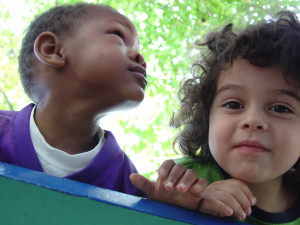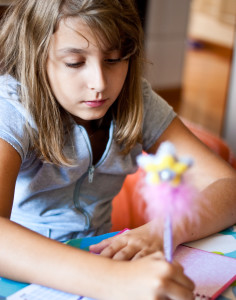Our children are constantly watching us, imitating our actions and picking up habits. Most days, we try to demonstrate patience and good will and hope our family life runs relatively smoothly. In other moments however, we may take shortcuts in attending to our children’s needs. Simply because we are busy with life and therefore prioritizing the urgent over the important!
“Parenting is less about looking after the now and more about preparing children to take control of their own future lives and to connect with others in lifelong relationships.” (Andrew Mullins, Parenting for Character 2005).
This quote certainly made me think about the important job we have as parents and the invaluable habits and lessons we can teach our children, particularly between ages 0-5 years. Children develop significantly from birth until 5 years of age in terms of physical, psychological and intellectual development. We want our children to develop strengths of character and form good habits from as early as possible.
Our children will constantly be looking to us, as their role models. They will copy our behaviors, good or otherwise. It is never too early to teach self-mastery and self-control as this can bring them security and happiness to progress in all areas of development.
Attending a talk recently on this particular subject, they spoke of developing four basic habits in children through the 0-5 years. Through these habits, children begin the first steps in exercising self-control and will power.
- Sleep
- Eating Habits
- Order
- Personal Hygiene
Forming good sleeping habits:
This area can certainly be one of the most challenging for many; particularly during these early years. We all need adequate amounts of sleep to function at our best each day. Yet it is hard when we have an unsettled baby or a child waking several times a night. Good sleeping habits are highly important to family life. It is certainly true that if baby isn’t sleeping well, then most likely Mum and Dad aren’t either.
I personally find it a struggle to keep positive and upbeat during the day, following a night of interrupted sleep. As much as I try to remain cheerful with my other children, the tiredness definitely affects my overall mood.
Try to avoid having your baby sleep in the bed with you. Even though the baby may be sleeping through the night, often you and your husband will have a more disrupted sleep. The longer bub is snuggled up against you, the more difficult the transition will be into their own cot or bed.
Babies need to learn how to sleep on their own and not be soothed immediately when they cry. Letting your baby cry themselves to sleep may be difficult and you may want to pick them up immediately to sooth and comfort them. However, if you feel that your baby has been well fed and is dry and comfortable, there is no harm in letting them cry for a while on their own. They will soon learn how to put themselves to sleep in the cot from being awake opposed to being rocked or falling asleep immediately after a feed.
It is so important to be united with your husband in the decisions you make in regards to sleep solutions for your child. If you have decided to let your baby or toddler cry for 20 minutes before going to sooth them, then follow through with this. You may be surprised how quickly a baby can learn and depending on your child, all it may take is a couple of nights or a few weeks at most. Persevere in this area as it is well worth it when you child has formed good sleeping habits. Sometimes, real love for your child might mean putting your emotions aside and doing what is best for the child.
Forming good eating habits:
Make sure that your baby is actually feeding well during feeding times. If you are breastfeeding and feel that your baby is not drinking properly, consult a lactation specialist to ensure that your latch is correct and your baby is properly draining the breast.
As your baby becomes older, increase the periods between each feed. I personally like to distract my baby by playing with him if I feel feed time is approaching and he is becoming grisly. You could also use the dummy as this can help in stretching out the time between feeds.
It can be tempting to feed the baby on demand to settle them in that instant. However, this does not help your baby in the long-term and can actually lead to shortened period of sleeps.
If you have a toddler, try to feed them the 3 main meals a day and a snack during the afternoon to keep them satisfied. My 2-year-old loves to run to the kitchen and open the pantry door in search of food! This became such a bad habit that as soon as she heard a rustle of a packet she came running into the kitchen. Saying ‘no’ can be difficult initially but children are quick little learners, if they learn that ‘no means no’ good habits can be established just as easily.
Helping children learn order:
Children from a young age of 2 can readily relate to order. Parents can help to form this good habit by teaching them about care of personal belongings and putting their toys away. Other good habits can be formed when children are not allowed to simply do what they ‘feel like doing’. Be fair but firm in your approach. For example, ‘when you packed up your blocks, then you may do some drawing’; instead of jumping from one activity to the next.
Three year old children are capable of simple chores such as helping to make beds, tidy and packing up toys, set the table, feeding pets and dressing themselves. At times it may be easier and often quicker to do something for your child. This however, does not teach and foster that confidence in them that they can complete that task on their own.
Maintaining good personal hygiene:
Most toddlers and young children certainly don’t mind getting their little hands grubby! Part of the fun often involves making a mess of some sort. It is good for children to explore and experiment and get themselves a little dirty. It is however, important for parents to teach personal hygiene to their children. From around 3 years old, your child can be taught to wash their hands independently before meals or after the toilet. They can also be taught not to eat things off the floor and realize the importance of wearing clean clothes to bed.
Teaching your children these 4 basic habits can be the beginnings of developing more important strengths of character such as having fortitude, self-control and being generous with others. They learn obedience and also patience in having to wait and appreciation for what they have.
Originally posted 2014-07-21 22:27:46.






I have to respectfully disagree with a couple of points in this article. While I’m not completely against letting a baby grissle a bit on their own when falling asleep, I think there are dangers is letting them cry for too long (http://www.psychologytoday.com/blog/moral-landscapes/201112/dangers-crying-it-out)
Also with the breastfeeding advice, I highly suggest reading some articles by Pinky McKay – breastfeeding on demand will help ensure the mother’s milk supply stays up to the demand of the infant – breastfeeding is for so much more than just fulfilling the hunger of the child, it’s an amazing way to bond and to sooth and I think that needs to be celebrated. Even breastfeeding through the night when the mother may be exhausted is more than JUST about the child’s hunger – Pinky McKay talks about how the breastmilk is actually different during the night than during the day, it’s not just about feeding but about “comfort, connection and immunity” (http://www.beautifulbreastfeeding.com/does-your-baby-really-need-night-feeds/)
While I agree with you about most of this, I have to disagree with the idea of not comforting your child, especially very little ones, when they cry. You should read Gregory and Lisa Popcak’s book ‘Parenting with Grace’ and you may change your mind on that point, and from memory Steve Biddulph’s book ‘Raising Babies’ talks about this also. I also find feeding on demand for babies is better than letting them wait it out, they soon find their own routine and I’ve never had any problems getting them into a ‘normal’ eating pattern when they are older. I think it is dangerous to think we can teach kids to be resilient and ‘strong’ by ignoring their needs, especially when they are very small. Having said that, I am all for helping them develop good habits and having them take responsibility for themselves and their things at an appropriate age.